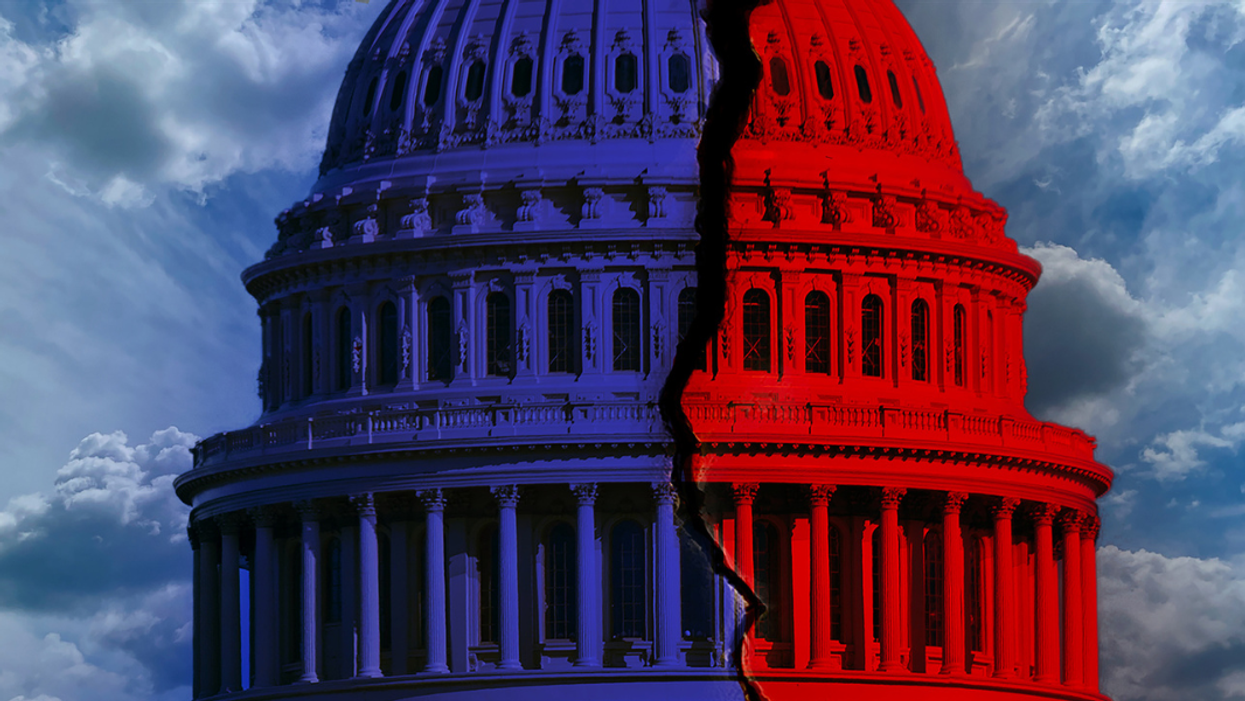Anderson edited "Leveraging: A Political, Economic and Societal Framework" (Springer, 2014), has taught at five universities and ran for the Democratic nomination for a Maryland congressional seat in 2016.
There is a conundrum at the center of American politics that is unresolvable on its face: according to Gallup, 40 percent of registered voters do not regard themselves as Democrats or Republicans, but they cannot express their deepest political commitments in electoral politics without voting for candidates who run as Democrats and Republicans.
Not voting at all is not much of a solution. Not voting is an indirect way of expressing your interests, but it will not get you very far. Indeed, if you lean toward one party, then not voting will make it impossible for you to cast a vote for a candidate who supports some of your interests. There is nothing wrong with voting for a third party or independent candidate, but the chances of your candidate winning are well under 5 percent.
The conundrum must be approached at its roots. But how? How do we get beyond dandelion solutions? Wisdom suggests that there is not one solution in the same way that there are a variety of ways to get rid of the roots of a patch of dandelions. You can get them all with a single shovel, some chemicals, dynamite or a bomb.
This is the starting point to resolving the conundrum of American electoral politics. We should not be trying to be the Newtonian genius who discovers the laws of motion -- or the Einsteinian genius who uproots them and rethinks the relationship between mass, energy and motion.
One approach restricts the scope of the problem by working on a part of the problem, whether it is elections in one state or only congressional elections or only presidential politics. So don't approach the problem by trying to change the system.
Given that the scope of the challenge can be restricted at the outset, what can be done?
It may be best for change agents to focus on being or backing independent candidates rather than third parties. The concept of third parties is a nonstarter for most Americans and most political scientists and sociologists. The concept of independents is different. Three U.S. Senators are independents, Bernie Sanders (Vermont), Angus King (Maine) and Kyrsten Sinema (Arizona). That is not an insignificant number. Nor are they the same kind of independents. Sanders is a democratic socialist, King is a New England moderate and Sinema is a creative, hard to pin down new centrist. Breaking out of the two party stranglehold thus may require more independent candidates who will speak to the interests of citizens who do not fall neatly into the Democratic or Republican categories.
The more independents who win, the more independents who will run.
That holds whether an independent wins a race for mayor or governor or president. The process of change, moreover, would presumably take five to ten years. So this strategy does not try to rip up the roots of the dandelions in 50 states all at once in one election. It rips up some roots at a time.
The most ambitious approach goes after the presidency with an independent candidate who appoints themself to lead an effort to force the two parties in Washington to work together. This can be done without the majority of votes, so long as 270 electoral votes were obtained. Lincoln, Wilson and Clinton all got the electoral votes with about 40 percent of the popular vote.
The independent strategy could also be worked from the state level, say in Minnesota or Wisconsin or Georgia. And states that sought to continue the effort to uproot the two party system could do so from a different ideological perspective. Minnesota might elect an independent for governor, as it did in 1999 when it chose Jesse Ventura to be its governor.
Avoiding third parties, encouraging independent candidates with diverse agendas, dismantling some gerrymandering, instituting ranked choice voting, and not tackling the systemic problem all at once provide some elements of a strategy for ultimately changing the system. By 2026, the 250th Anniversary of the United States, we should have a Declaration of Independents. This Declaration could include a flood of independents in the midterm elections.




















Trump & Hegseth gave Mark Kelly a huge 2028 gift